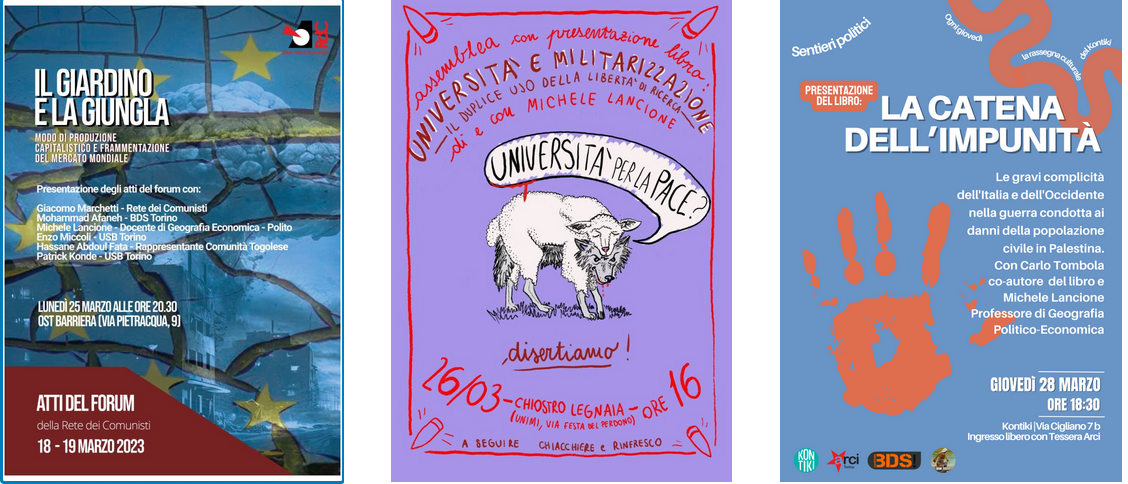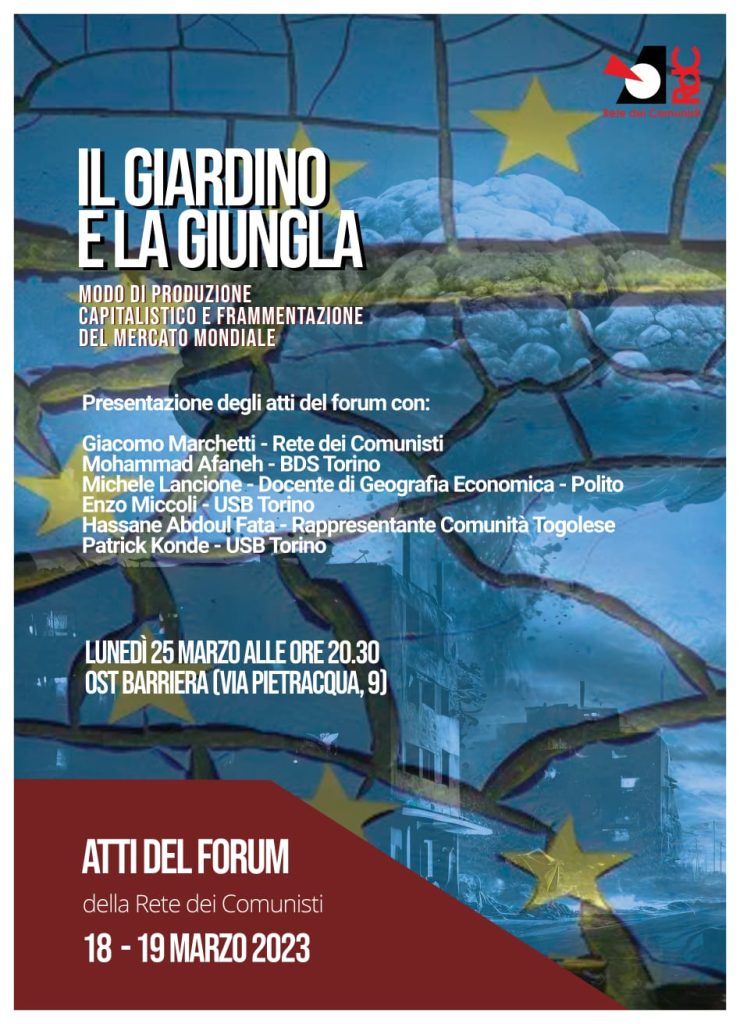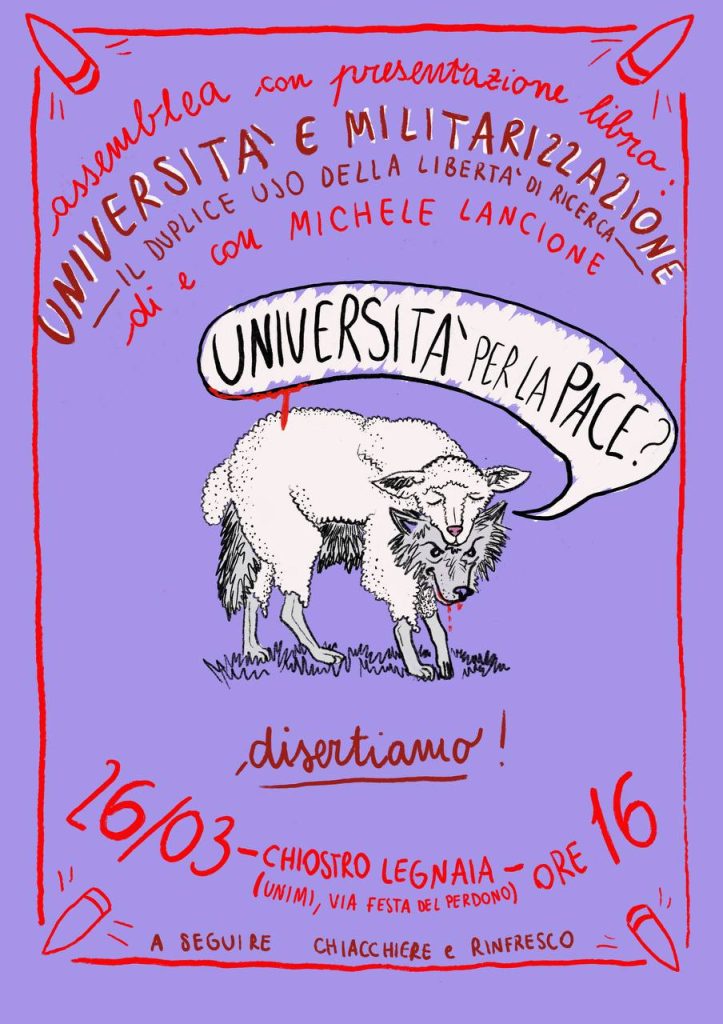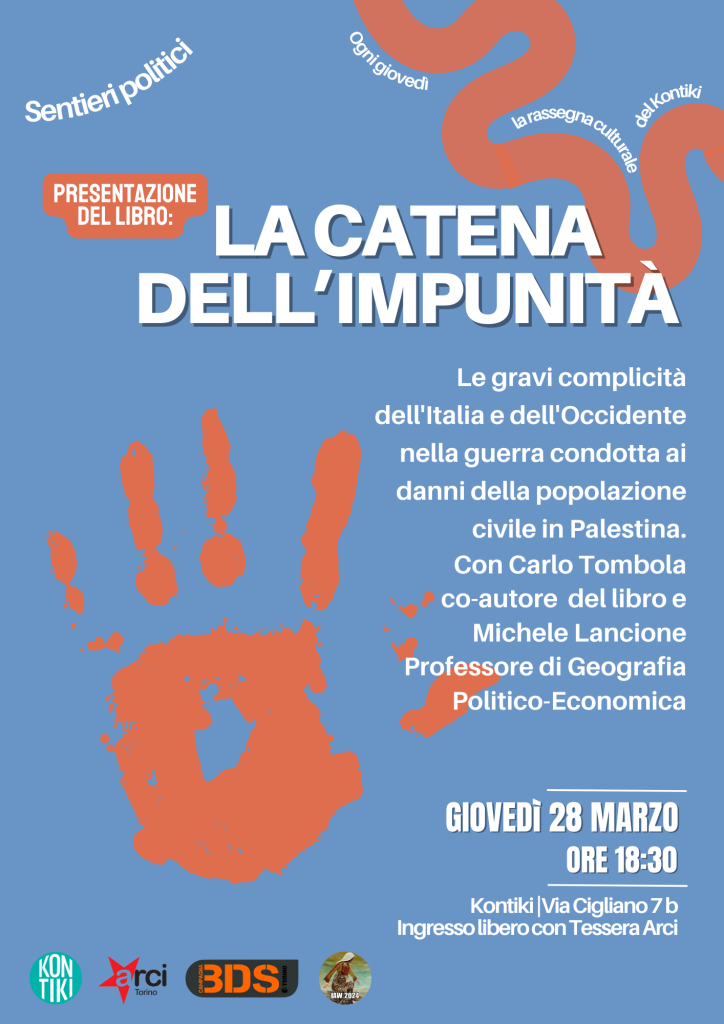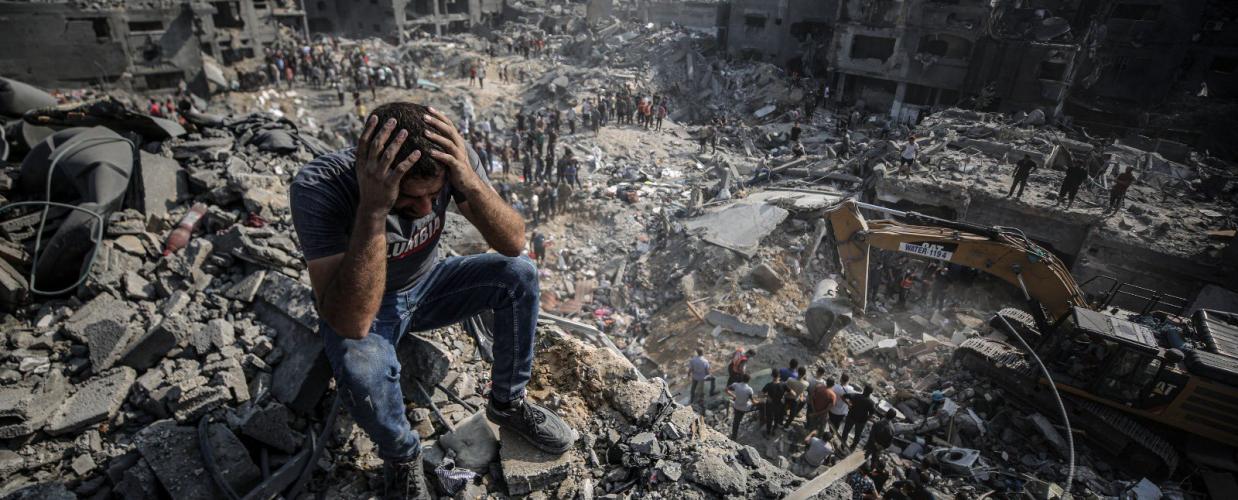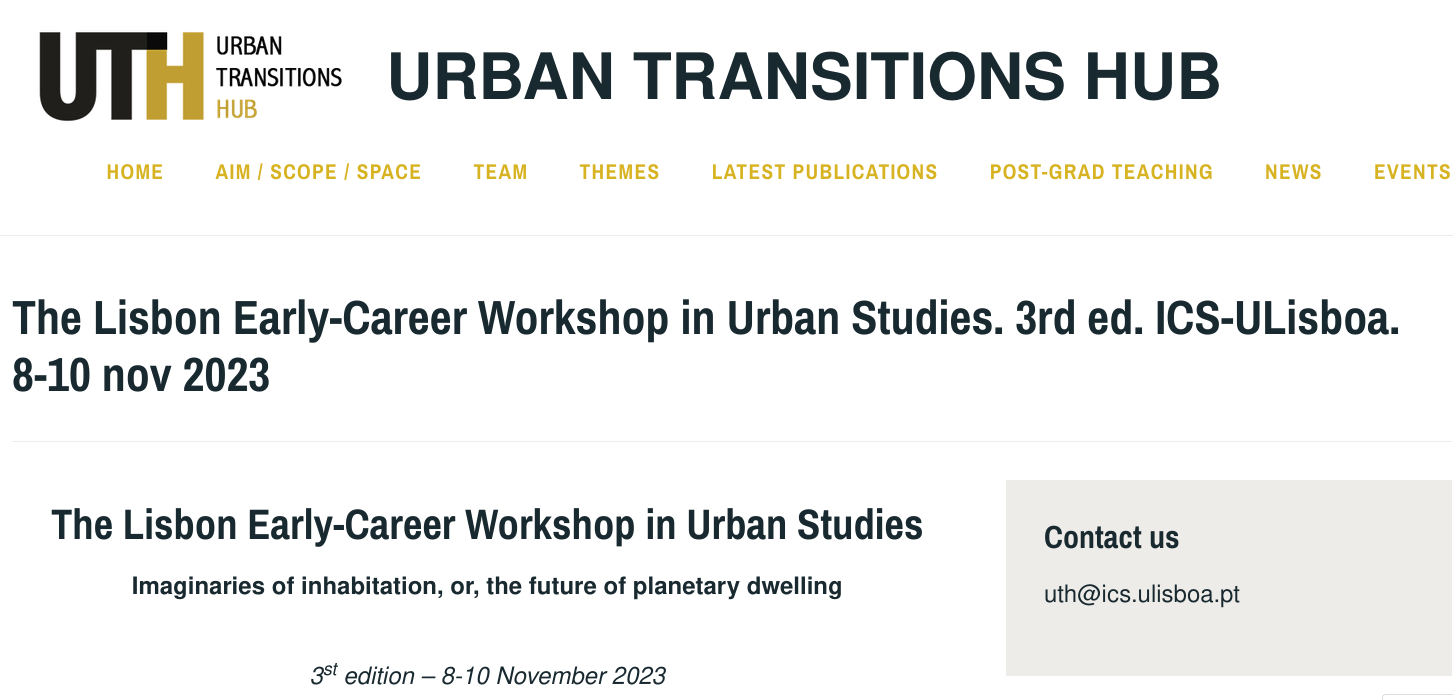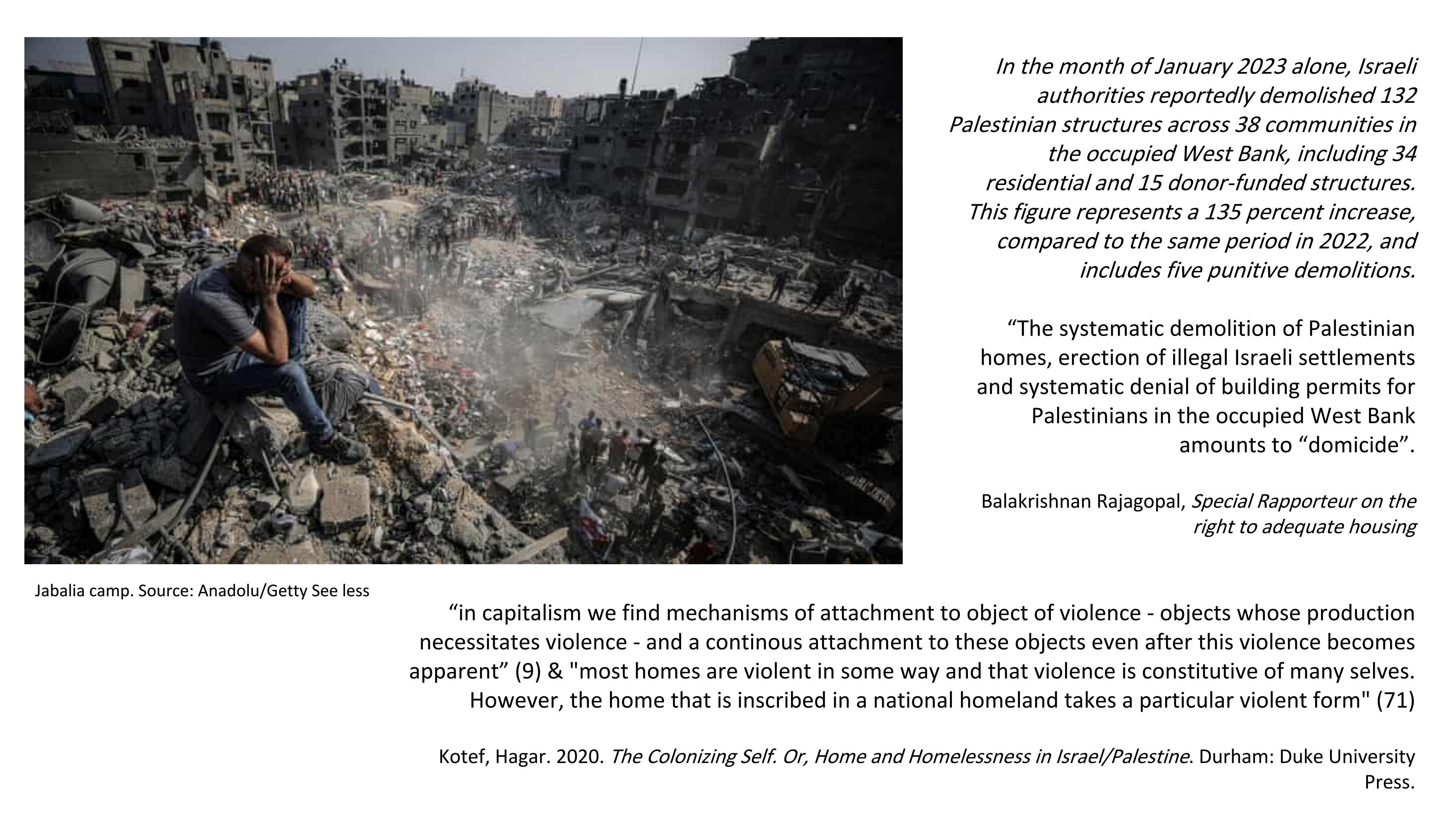My anti-militarist practice has brought me, for many years, to embrace the Palestinian-led Boycott, Disinvest, Sanction (BDS) campaign against the Israeli military-industrial regime and its death project (I speak of this in my recent volume Universitá e Militarizzazione). For decades, we have witnessed the relentless colonization of post-1967 West Bank territories and the caging of Palestinian life in Gaza. Now, after the ignominious Hamas attack on October 7th, Palestinians are confronted with the extreme intensification of the colonial project of Israel in Palestine.
After more than 24,000 deaths in a few months, the destruction of present and past infrastructures, the domicides of homes, and the total annihilation of consistent parts of Gaza, we need to call the Israeli State’s intervention for what it is: a genocide. This is not an elaborate left-wing ‘woke’ fantasy but the reality of the war on the ground. I report below the joint statements of many UN Rapporteurs, including Mr. Balakrishnan Rajagopal, Special Rapporteur on the right to adequate housing and Ms. Francesca Albanese, Special Rapporteur on the situation of human rights in the Palestinian Territory occupied since 1967 – a must-read, to cease fire now, and then to stop this colonial occupation.
Over one hundred days into the war, Israel destroying Gaza’s food system and weaponizing food, say UN human rights experts
Source: OHCHR
GENEVA (16 January 2024) – Gazans now make up 80 per cent of all people facing famine or catastrophic hunger worldwide, marking an unparalleled humanitarian crisis in the Gaza Strip amid Israel’s continued bombardment and siege, according to UN human rights experts.
“Currently every single person in Gaza is hungry, a quarter of the population are starving and struggling to find food and drinkable water, and famine is imminent. Pregnant women are not receiving adequate nutrition and healthcare, putting their lives at risk. In addition all children under five – 335,000 – are at high risk of severe malnutrition as the risk of famine conditions continues to increase, a whole generation is now in danger of suffering from stunting,” said the experts. Stunting occurs when young children’s growth is hampered due to lack of adequate nourishment and causes irreparable physical and cognitive impairments. This will undermine the learning capacity of an entire generation.
Nowhere is safe in Gaza. Since 9 October, Israel declared and imposed a “total siege” on Gaza, depriving 2.3 million Palestinians of water, food, fuel, medicine, and medical supplies, this against the backdrop of a 17-year Israeli blockade, which before this war made approximately half of the people in Gaza food insecure and more than 80 percent reliant on humanitarian aid.
While the majority of aid distribution is concentrated in the southern governorates, since 1 January, only 21 per cent (5 out of 24) of planned deliveries of aid containing food and other lifesaving supplies reached their destination north of Wadi Gaza. The experts are particularly alarmed about conditions in northern Gaza, where the population faces prolonged food shortages and extremely restricted access to essential resources. In southern Gaza, a large concentration of individuals resides in inadequate shelters or areas devoid of basic amenities, escalating the brutal situation.
“It is unprecedented to make an entire civilian population go hungry this completely and quickly. Israel is destroying Gaza’s food system and using food as a weapon against the Palestinian people.”
Israel is destroying and blocking access to farmland and the sea. Recent reports allege that since Israeli military’s ground offensive started on 27 October, approximately 22% of agricultural land, including orchards, greenhouses, and farmland in northern Gaza, has been razed by Israeli forces. Israel has reportedly destroyed approximately 70% of Gaza’s fishing fleet. Even with little humanitarian aid that has been allowed to enter, people still lack food and fuel to cook. Most bakeries are not operational, due to the lack of fuel, water, and wheat flour along with structural damage. Livestock are starving and unable to provide food or be a source of food. Meanwhile, access to safe water continues to diminish while the healthcare system has collapsed due to the wide-spread destruction of hospitals, significantly heightening the spread of communicable diseases.
Israel has also destroyed more than 60% of Palestinian homes in Gaza, directly affecting the ability to cook any food, and causing domicide through the mass destruction of dwellings, making the territory uninhabitable. The U.N. Office for the Coordination of Humanitarian Affairs has estimated that nearly 85% of Gaza’s population — representing 1.9 million people — is internally displaced, including many who have been displaced multiple times, as families are forced to move repeatedly in search of safety.
“We have raised the alarm of the risk of genocide several times reminding all governments they have a duty to prevent genocide. Not only is Israel killing and causing irreparable harm against Palestinian civilians with its indiscriminate bombardments, it is also knowingly and intentionally imposing a high rate of disease, prolonged malnutrition, dehydration, and starvation by destroying civilian infrastructure,” said the experts. “Aid needs to be delivered to Gazans immediately and without any hindrance to prevent starvation.”
“Our alarm for the unfolding genocide does not only refer to the ongoing bombardment of Gaza but also concerns the slow suffering and death caused by Israel’s long-standing occupation, blockade and current civic destruction, since genocide advances through an ongoing process and is not a singular event.”
“The clear path to achieving peace, safety, and stability for both Israelis and Palestinians lies in the realization of Palestinian self-determination. This can only be achieved through an immediate ceasefire and the cessation of the Israeli occupation”.
Mr. Michael Fakhri, Special Rapporteur on the right to food; Ms. Farida Shaheed, Special Rapporteur on the right to education; Ms. Tlaleng Mofokeng, Special Rapporteur on the right of everyone to the enjoyment of the highest attainable standard of physical and mental health; Mr. Balakrishnan Rajagopal, Special Rapporteur on the right to adequate housing, Ms. Paula Gaviria Betancur, Special Rapporteur on the human rights of internally displaced persons; Ms. Francesca Albanese, Special Rapporteur on the situation of human rights in the Palestinian Territory occupied since 1967; Ms. Reem Alsalem, Special Rapporteur on violence against women and girls, its causes and consequences; Mr. Pedro Arrojo Agudo, Special Rapporteur on the human rights to safe drinking water and sanitation.
Picture: Reuters.
Like this:
Like Loading...






